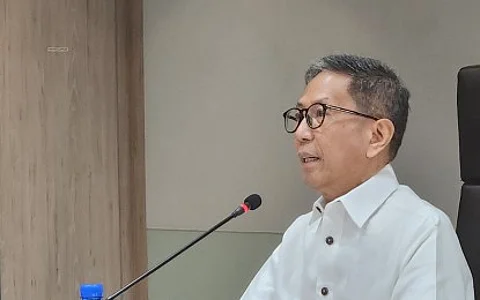
- NEWS
- the EDIT
- COMMENTARY
- BUSINESS
- LIFE
- SHOW
- ACTION
- GLOBAL GOALS
- SNAPS
- DYARYO TIRADA
- MORE

Environment Secretary Raphael P. M. Lotilla on Friday hailed the Philippine Senate’s unanimous ratification of the Agreement under the United Nations Convention on the Law of the Sea (UNCLOS) on the Conservation and Sustainable Use of Marine Biodiversity of Areas Beyond National Jurisdiction (BBNJ), also known as the High Seas Treaty.
“With its unanimous concurrence, the Senate signified its commitment to safeguarding the nation’s marine wealth and humankind’s common heritage for the benefit of coastal communities, fisherfolk, scientists, and all who rely on the bounty of the ocean,” the Department of Environment and Natural Resources (DENR) chief said. “This signals a strong adherence to equity and inclusivity, which can be achieved only through multilateralism, international cooperation, and a rules-based international order."
“The DENR stands shoulder to shoulder with the Senators, the whole of government, and the whole of society to fulfill the promise of the conservation and sustainable use of the richest source of humanity’s sustenance,” the DENR Secretary added.
The BBNJ Agreement covers areas beyond national jurisdiction (ABNJ) — the high seas and the Area — encompassing the water column, seabed, ocean floor, and subsoil not under any state’s sovereignty or jurisdiction. While the high seas are open to all states for activities such as fishing and scientific research, states must act with due regard for others’ rights and are obligated to protect and preserve the marine environment. Mineral resources in the seabed, ocean floor, and subsoil are deemed the common heritage of humankind and cannot be appropriated by any state.
As an archipelagic and maritime nation rich in marine biodiversity, the Philippines relies on the integrity of its marine ecosystems for food security and climate resilience. Under the BBNJ framework, area-based management tools — such as marine protected areas — and environmental impact assessments for activities within or affecting ABNJ are expected to help maintain the health of adjacent seas and fisheries within the country’s national jurisdiction. More than half of national fisheries production comes from migratory and highly mobile species whose life cycles extend into ABNJ.
The Agreement also provides for equitable benefit-sharing from the use of marine genetic resources, potentially supporting new medicines, advances in aquaculture, and biodiversity conservation. It further recognizes the special requirements of developing states, including archipelagic states, by enhancing capacity-building and the transfer of marine technology. Covering nearly half of Earth’s surface, ABNJ represent a vast provider of ecosystem services essential to global well-being.
During the 78th Session of the United Nations General Assembly in September 2023, then Foreign Affairs Secretary Enrique Manalo signed the BBNJ Agreement for the Philippines alongside 67 other states, marking the country’s formal participation in the global effort to protect marine biodiversity beyond national jurisdictions. Former DENR Secretary Maria Antonia Yulo Loyzaga joined leaders at the High-Level Meeting on the BBNJ Agreement, underscoring the urgency of collective action and reaffirming the Philippines’ commitment to work toward the treaty’s entry into force by the 2025 UN Ocean Conference.
